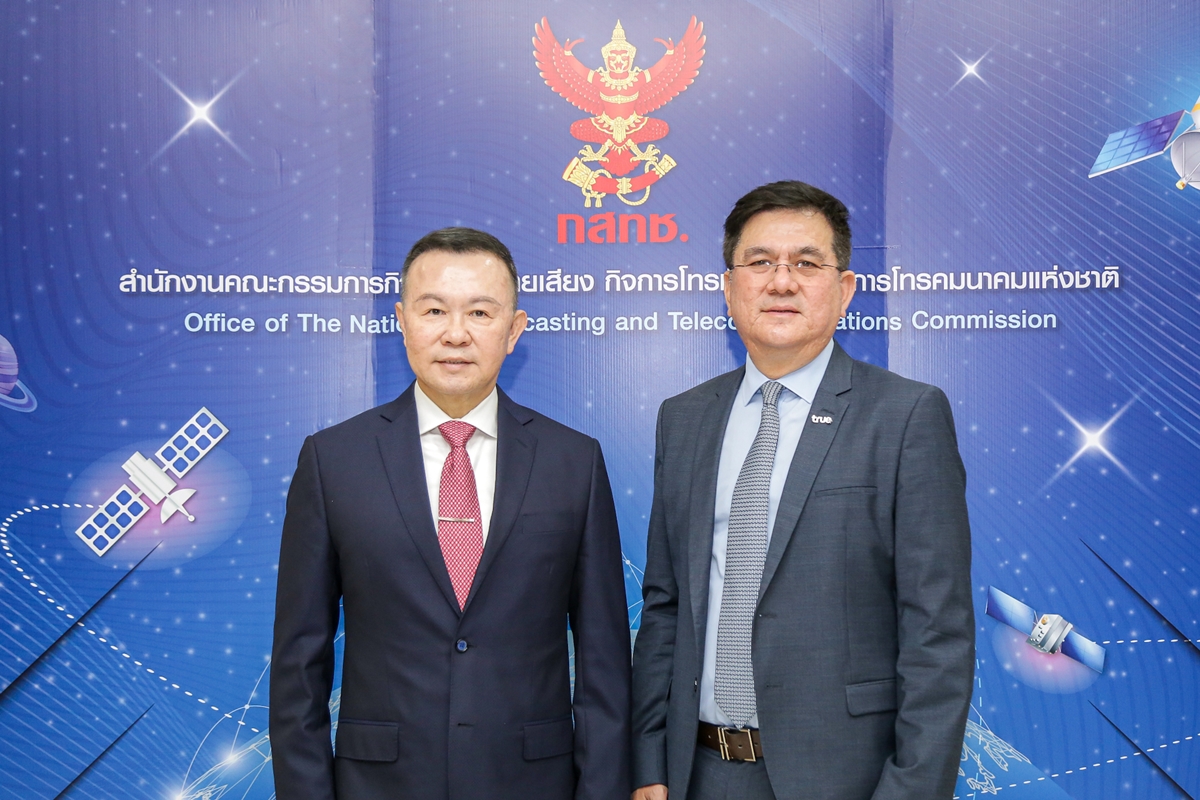Thailand has long sat on the global tourism map. Its beautiful sea, in particular, has attracted tourists from all over the world. Currently, tourism accounts for 18% of the Thai economy.
Mesmerizing natural landscapes are just parts of the country’s magnets, though. What have fascinated tourists, Thai and foreign alike, are also cultural diversity and distinctive ways of life. While Surat Thani’s other islands such as Samui, Pha Ngan and Tao are more famous, Kok Nok Phao for example has its own unique charm.
Marooned by the sea
Koh Nok Phao is located in Surat Thani’s Don Sak district. Legends have it that the island’s first two residents were “Grandpa Nin and Grandma Jaem”. The Chinese-ethnic couple rowed their boat from Samui Island to Koh Nok Phao to settle down as pioneers in 1932. Their efforts paid off. Finally, they were issued land-rights documents. That’s when the two Thais started inviting their relatives to settle down on the same island. The settlement on Koh Nok Phao, as a result, has been growing bigger. After three generations, its population now covers about 100 people.

Geographically speaking, Koh Nok Phao is eight kilometers from Don Sak Pier. To travel this distance, it takes just 30 minutes by a long-tailed boat but petrol per trip costs at least 1,000 baht. With such conditions, residents on Koh Nok Phao have limited their interisland travels.
Because their hometown sits on a remote location, locals on Koh Nok Phao tend to be reclusive. Their access to basic utilities is also very restricted. Although the government has installed a generator on this island, electricity services are available only five hours a day – from 6pm to 11pm. In the past, Koh Nok Phao’s communication services also relied solely on signals from a base station elsewhere. Locals had to make do with limited opportunities for a really long time.
Koh Nok Phao residents’ main livelihoods are artisanal fisheries and basic vegetable farms. Their income is adequate, enough to support their families as well as to pay for their children’s higher education. Suthorn “Seth” Jensamut has become a long-time resident on the island after marrying a local woman 25 years ago.

“People around Don Sak and islands are fishermen. I myself grew up with the sea. Yet, when I first migrated to Koh Nok Phao, I still needed to adjust a lot. Koh Nok Phao was very quiet. There was no entertainment. Each day, I just had to go out to the sea to catch shrimp, fishes and crabs and then sell them at Don Sak,” Seth said about his life as an islander.
From fishing to tourism
After spending more than a decade as a fisherman, Seth found a turning point. In 2014, his relatives from other islands visited him. As outsiders, they were quick to notice Koh Nok Phao’s unique appeal. Unlike other islands, Koh Nok Phao exuded unparalleled tranquility and boasted unspoiled nature. On lucky days, it was even possible to see pink dolphins and dugongs swimming around.
‘Why didn’t you start homestay services then?’ was a question from the visiting relatives, who were impressed with Koh Nok Phao’s charm. Their suggestion was a wonderful idea in the eyes of Seth, who had been pondering for some time about finding another source of income for risk-distribution purposes. Seth believed fishing relied too much on weather conditions.

“I had spent my whole life with the sea. And even if I almost died in the sea, I had never thought that I would one day shift to tourism,” Seth said. He said he made the decision only after he realized how uncontrollable Mother Nature was. After contemplating on his relatives’ suggestion for seven days, Seth spent all his savings – amounting to 700,000 baht – as the initial capital for his “homestay venture”.
Back then, starting a homestay business on a remote island like Koh Nok Phao was hugely challenging. Transportation was not as convenient as today. Public boat services were not available. Promoting Koh Nok Phao would require a big amount of money, given that Thailand’s social media were still in infancy at that time. Many of Seth’s friends thus tried to change his mind. Yet, Seth did not give up his plan. He even constructed rooms for his guests himself. Created by much of Seth’s time, money and energy, “Koh Nok Phao Homestay” finally sprang into operation. Seth learnt how to produce social-media content from his wife’s elder sister and uploaded it on his business’ Facebook page. After a while, his homestay business attracted its first group of guests. This group had 16 members, all of them working for an electricity authority in Bangkok. These tourists were interested in Seth’s homestay services because Koh Nok Phao was different from other islands.

The cost of being excluded
For his guests’ satisfaction, Seth served as a tour guide, a captain and a butler. His wife, meanwhile, functioned as a chef. She cooked four meals for the visitors. Her dishes focused on fresh seafood and flavorful southern delicacies. Big highlights were “grilled violet sea snails with butter”, which were rare to find. Guests were so impressed that they decided to stay at Seth’s place for one more night. Their response boosted Seth’s morale to the point that he was determined to develop his homestay business further and made it a mission to ensure all his guests have a beautiful memory of Koh Nok Phao.
“Whitewater rafting” is a recreational activity Seth has prepared for his guests’ entertainment. His raft is unique, made of several large colorful Styrofoam sheets and nylon ropes. For guests’ safety, they are required to wear life vests during the activity. Seth drags the raft around with his boat. The chosen route is fantastic, covering highlights such as Longhon Beach (covered with white shells), sundown vantage point, and a swallow cave that is accessible through a trek.

While Seth’s homestay business was doing well and his family’s quality of life improved, it shouldered hefty “lost opportunity cost”. Because Koh Nok Phao was far from urban development, it hardly had access to mobile-phone or broadband internet signal.
“Koh Nok Phao residents were marginal. When we wanted to communicate with outsiders, we had to ride our motorcycle to the tip of our island because it was the only area on Koh Nok Phao that could catch signal from a base station elsewhere. Often, our potential customers could not contact us. When we got the signal and called back, they would tell us that they had already made a booking at another place. Several customers also cancelled their plan to stay with us after knowing that there was no cell-phone service,” Seth recounted about the difficulty in the past.
Life is good with internet
One day, while driving his boat to bring a tour group to Samui Island, Seth noticed a man carrying unusual electronic devices. It was as if he was testing signals. Curious, Seth asked what he was doing. After the man identified himself as a high-level executive of True Corporation, Seth told him about his ordeals. The two men discussed many problems from the lack of communication signals in detail. Yet, after that encounter, Seth felt it was too much to dream of getting cell-phone signal on Koh Nok Phao. The island, after all, had just about 100 residents.

Three months later, a big team of True turned up on Koh Nok Phao to survey a site for setting up a base station. Seth could not believe his eyes and approached the team to doublecheck. Not just Seth but also other residents of Koh Nok Phao were over the moon, upon receiving assurances that they would soon get clear cell-phone signal.
True has operated the base station on Koh Nok Phao for more than five years now, giving locals communications services that are the lifeline of the digital age. Their quality of life has thus improved thanks to their instant access to information. Backed by better communication services, Seth’s Koh Nok Phao Homestay has been prospering. Now, its Facebook fan page has attracted thousands of followers. Rooms have been fully booked till March next year. Seth has already replaced his long-tail boat with a 50-seat speedboat to accommodate his growing business.

“Internet and cell-phone signals are the heart of contemporary lifestyles. Koh Nok Phao, which once looked like a deserted island, now ranks among Surat Thani’s Top 10 attractions,” Seth said proudly.
If you wish to indulge in Koh Nok Phao’s tranquility and charm, local ways of life, crisp air and fresh seafood, browse to Facebook: Koh Nok Phaoโฮมสเตย์.





